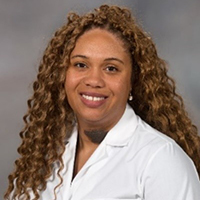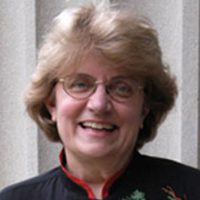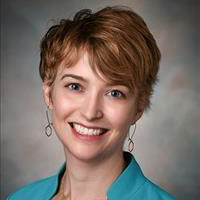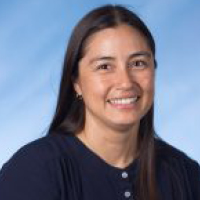- Membership & Community
-
Publications & News
- Physiology Journals
-
Newsroom
-
The Physiologist Magazine
- 2019
- 2020
- 2021
- 2022
- 2023
- 2024
-
In Depth
- In Depth—The Bear Necessities
- In Depth: Understanding Circadian Rhythms
- In Depth: Understanding Data
- In Depth: Exercise Physiology: Take Your Medicine at the Gym
- In Depth: Neurodegenerative Disorders
- Imaging Methods Unveil the Invisible
- Rewiring the Brain: Breakthroughs in Neural Therapy
- What’s Coming Next for GLP-1 and Metabolic Disease Treatment
-
Mentoring Forum
- Net Worth
- Take Care
- You … In Charge
- Work. It. Out.
- Working Off-site
- Location, Location, Location?
- Student Support
- Progressing to Postdoc
- Relationship Building
- Let’s Get It Started
- What Do We Value?
- It’s a Postdoc Life
- Coronavirus Contributions
- Creative Communications
- Selection Process
- Conference Connections
- Postdoc Appreciation
- Research Rewards
- Focus on Teaching
- Industry Insights
- Balance Beam
- Post Postdoc
- If You Build It
- Talk It Through
- Forward Bound
- I’ve Earned My PhD. Now What?
- University Life
- Tips for Trainees
- Time Travel
- Prepare Now for the Career You Want
- Landing a Postdoctoral Researcher Position
- Becoming a Physician-Scientist
- Mastering the Art of Science Communication
- Setting Yourself Up for Success in the Lab
- From Postdoc to Professor: Key Strategies for Success
- How to Stay Motivated in Challenging Times
-
Policy IQ
- Policy IQ—2023 in Review: How APS Advocated on Behalf of Physiologists
- Policy IQ—Supporting Equitable Research
- NIH's Road Map to a Better Postdoc Experience
- The Career Path to Science Advocacy
- Culture of Safety: Stopping Sexual Misconduct
- Physiologists Return to Capitol Hill
- Tips for Scientists to Communicate about Animal Research
- Science Advocacy in a New Political Landscape
- Tips for Making the Call to Congress
-
Publish with Polish
- Publish with Polish
- The Layers of Open Science
- Take Your Content From Meeting to Manuscript
- APS Journals to Highlight Women’s Health Research
- What Subscribe to Open Means for APS Members
- The 5 Pillars of Publish with Purpose
- 3 Types of Metadata Researchers Should Know About
- Navigating Open Access and New Licensing Options
- Journal Manuscript Prep Made Easy
- Under the Microscope
- Mentoring Q&A
- Evolution
- Baseline by Scott Steen, CAE, FASAE
- 2025
- Find Us on Social Media
-
The Physiologist Magazine
-
Professional Development
-
Meetings & Events
-
American Physiology Summit
- #APS2024 Overview
- Abstracts
- Awards at the Summit
- Award Lectures
- Career Networking Lunch Form
- Dates and Deadlines
- Advocate for Health Research Funding
- Hotel Information
- Information for International Travelers
- Industry Partners
- Keynote Speaker—James Rothman, PhD
- Keynote Speaker—George Brooks, PhD, FAPS
- Keynote Speaker—Holly Ingraham, PhD
- Mobile App
- NIH and NSF Program Officer Panel Discussion Form
- Physical Poster Information
- PhysioHub
- Pre-Summit Events
- Registration
- Section & Group Banquet Tickets
- Social Events
- Speaker Audiovisual Instructions
- Summit FAQs
- Summit Newsroom
- Travel & Transportation
- Undergraduate Program Book
- Liability Waiver
- Industry Partners
- Martin Frank Diversity Travel Award Orientation Agenda
- Martin Frank Diversity Travel Award Networking Luncheon Agenda
- Women in Physiology Networking Event Agenda
- 2026 American Physiology Summit
- Joseph Erlanger: Pioneering Nerve Research and APS Leadership
-
2023
- APS 2023 Call for Proposals
- Shocklogic Test
- Team 2023 Task Force
- Shaping the Summit
- Schedule at a Glance
- Pre-Summit Events
- Pre-Summit Center for Physiology Education Workshop Registration
- Section & Groups Banquet Tickets
- Pre-Summit Center for Physiology Education Workshop
- Press Registration
- Meet the Organizers
- Keynote Speaker—Terrie Williams, PhD
- Keynote Speaker—David Julius, PhD
- Industry Workshop Information
- Important Dates and Deadlines
- Hotel Information
- Distinguished Lecturers
- Building APS 2023
- Awards at the Summit
- American Physiology Summit Program
- 2024
- Scientific Integrity Policy
- From Concept to Classroom
- New Trends in Sex Differences and Women’s Health Research
- Control of Renal Function in Health and Disease 2026
- Comparative Physiology Conference 2026
- Webinars
- Related Meetings
- Future APS Conferences
- Conference Policies
-
American Physiology Summit
- APS Awards
-
Career & Professional Development
-
Career Gateway
-
Resources
- Transcript—Leading Through Conflict and Difficult Conversations
- Transcript—Managing Conflict with Colleagues
- Transcript—Leading a Team Through Conflict
- Transcript—Providing Difficult Feedback
- Transcript—Team Dynamics and Culture Primer
- Transcript—Building a Team
- Transcript—Leading a Team Assigned to You
- Transcript—Creating a Team Culture
-
Resources
- Career Navigator
- Center for Physiology Education
- Virtual Courses
- Physiology Job Board
- APS Graduate Physiology & Biomedical Science Catalog
-
Career Gateway
-
Meetings & Events
-
Advocacy & Resources
- Policy Areas
-
Resources
- Researcher Resources
- Educator Resources
- Trainee Resources
- Student Resources
-
APS Graduate Physiology & Biomedical Science Catalog
- Des Moines University
- George Washington University
- Mayo Clinic Graduate School of Biomedical Sciences—Biomedical Engineering & Physiology
- Michigan State University
- New York Medical College
- Nova Southeastern University
- Pennsylvania State University
- Texas A&M University
- Texas A&M University Medical Physiology
- Stony Brook University
- The University of Iowa
- University of Alabama at Birmingham
- University at Buffalo
- University of Colorado
- University of Michigan
- University of Minnesota
- University of Missouri-Biomedical Sciences
- University of Nebraska Medical Center
- University of Nevada, Reno
- University of South Carolina School of Medicine
- University of Tennessee Health Science Center (UTHSC)
- University of Texas Health Science Center
- Virginia Commonwealth University
- Wayne State University
- Physiology Department Catalog Submission Form
- Boston University
- Women's Health Research Initiative
- Career Gateway
- Diversity, Equity & Inclusion
- Advocate for Science
- About APS
Picture a Scientist is a 93-minute film that was an official selection of the 2020 Tribeca Film Festival. The film focuses on challenges women face in science and how they have successfully overcome them. The film has been screened in theaters across the U.S. and has raised money for organizations advancing women of color in STEM. APS is pleased to offer a private, virtual screening of Picture a Scientist for our members in cooperation with Roco Films.
This event is for APS Members only and space is limited so register early.
Register to receive a link to view the film between January 25 and 27. Then, on January 28, join our panel discussion. Nancy Hopkins, PhD, a biologist featured in Picture of a Scientist, will share her story and experience making the film. Hopkins and other panelists will offer strategies for women in STEM to become empowered to overcome career obstacles and make science more welcoming and inclusive for all.
Moderator
 Kedra Wallace, PhD, is a tenured associate professor in the Department of Obstetrics and Gynecology with a joint appointment in the Department of Neurobiology and Anatomical Sciences at the University of Mississippi Medical Center (UMMC). She received her undergraduate degree in biology from Millsaps College in Mississippi, a master’s degree in pharmacology & toxicology and PhD in neuroscience from UMMC. Wallace completed her postdoctoral fellowship in obstetrics and gynecology at UMMC. She serves as program director for the master’s of clinical investigation graduate program at UMMC, track director for the maternal-fetal-medicine graduate program and is division chief for the research division of the Department of Obstetrics and Gynecology. Wallace is committed to increasing health literacy among women and increasing STEM opportunities for undergraduate students, especially those who may be adversely affected by racial, gender, education and/or economic disparities. Wallace is the incoming chair for the American Physiological Society (APS) Women in Physiology Committee.
Kedra Wallace, PhD, is a tenured associate professor in the Department of Obstetrics and Gynecology with a joint appointment in the Department of Neurobiology and Anatomical Sciences at the University of Mississippi Medical Center (UMMC). She received her undergraduate degree in biology from Millsaps College in Mississippi, a master’s degree in pharmacology & toxicology and PhD in neuroscience from UMMC. Wallace completed her postdoctoral fellowship in obstetrics and gynecology at UMMC. She serves as program director for the master’s of clinical investigation graduate program at UMMC, track director for the maternal-fetal-medicine graduate program and is division chief for the research division of the Department of Obstetrics and Gynecology. Wallace is committed to increasing health literacy among women and increasing STEM opportunities for undergraduate students, especially those who may be adversely affected by racial, gender, education and/or economic disparities. Wallace is the incoming chair for the American Physiological Society (APS) Women in Physiology Committee.
Panelists
 Nancy H. Hopkins, PhD, is a molecular biologist and an Amgen professor of biology emerita at the Massachusetts Institute of Technology (MIT) in Cambridge, Massachusetts. She is known for her research identifying genes required for early development of the zebrafish and genes that predispose adult fish to cancer. Hopkins is a pioneer in advancing the role of women in scientific research in academia. Recently she has addressed the under-representation of women as founders and board members of biotech start-ups. She is a member of the National Academy of Sciences, the Institute of Medicine of the National Academy, and the American Academy of Arts and Sciences. Hopkins is an alumna of Radcliffe College and earned a PhD from the Department of Molecular Biology and Biochemistry at Harvard University in 1971.
Nancy H. Hopkins, PhD, is a molecular biologist and an Amgen professor of biology emerita at the Massachusetts Institute of Technology (MIT) in Cambridge, Massachusetts. She is known for her research identifying genes required for early development of the zebrafish and genes that predispose adult fish to cancer. Hopkins is a pioneer in advancing the role of women in scientific research in academia. Recently she has addressed the under-representation of women as founders and board members of biotech start-ups. She is a member of the National Academy of Sciences, the Institute of Medicine of the National Academy, and the American Academy of Arts and Sciences. Hopkins is an alumna of Radcliffe College and earned a PhD from the Department of Molecular Biology and Biochemistry at Harvard University in 1971.
 Lacy M. Alexander, PhD, FACSM, is a professor of kinesiology at Pennsylvania State University. Her research examines in vivo and in vitro mechanisms of vascular dysfunction in people with cardiovascular disease. Alexander and her research team have developed and validated the human cutaneous circulation as a powerful model for examining mechanisms underlying microvascular dysfunction in health and disease. Alexander has received several awards including the Pattishall Outstanding Research Achievement Award, the APS Environmental and Exercise Physiology (EEP) New Investigator Award and the APS Cardiovascular Early Investigator Research Recognition Award. Alexander is steadfast in her commitment to equity and inclusion and serves as an advocate for students and early-career investigators. She is currently the chair of the EEP section and an associate editor for the Journal of Applied Physiology.
Lacy M. Alexander, PhD, FACSM, is a professor of kinesiology at Pennsylvania State University. Her research examines in vivo and in vitro mechanisms of vascular dysfunction in people with cardiovascular disease. Alexander and her research team have developed and validated the human cutaneous circulation as a powerful model for examining mechanisms underlying microvascular dysfunction in health and disease. Alexander has received several awards including the Pattishall Outstanding Research Achievement Award, the APS Environmental and Exercise Physiology (EEP) New Investigator Award and the APS Cardiovascular Early Investigator Research Recognition Award. Alexander is steadfast in her commitment to equity and inclusion and serves as an advocate for students and early-career investigators. She is currently the chair of the EEP section and an associate editor for the Journal of Applied Physiology.
 Keshari Thakali, PhD, is an assistant professor in the Department of Pediatrics, Section of Developmental Nutrition at the University of Arkansas Medical School. Thakali’s laboratory investigates mechanisms by which maternal overnutrition during pregnancy programs offspring vascular function. Her research is centered around studying perivascular adipose tissue, an adipose depot surrounding blood vessels and an important paracrine regulator of underlying smooth muscle and endothelial cell function. Thakali has participated in the Girls in STEM program through the Museum of Discovery in Little Rock. This program is designed to give participants an opportunity to explore STEM careers with hands-on activities led by female STEM professionals, ultimately encouraging them to continue and pursue STEM studies and/or careers. She has been a longtime APS member and is a member of the Society’s Diversity, Equity & Inclusion (DEI) Committee.
Keshari Thakali, PhD, is an assistant professor in the Department of Pediatrics, Section of Developmental Nutrition at the University of Arkansas Medical School. Thakali’s laboratory investigates mechanisms by which maternal overnutrition during pregnancy programs offspring vascular function. Her research is centered around studying perivascular adipose tissue, an adipose depot surrounding blood vessels and an important paracrine regulator of underlying smooth muscle and endothelial cell function. Thakali has participated in the Girls in STEM program through the Museum of Discovery in Little Rock. This program is designed to give participants an opportunity to explore STEM careers with hands-on activities led by female STEM professionals, ultimately encouraging them to continue and pursue STEM studies and/or careers. She has been a longtime APS member and is a member of the Society’s Diversity, Equity & Inclusion (DEI) Committee.
 Clintoria Williams, PhD, is an assistant professor of neuroscience, cell biology and physiology at Wright State University in Dayton, Ohio. Receiving the prestigious National Institutes of Health-funded Minority Access to Research Careers for Undergraduate Students Training in Academic Research fellowship fueled her desire to pursue a doctoral degree in cellular and molecular physiology at the University of Alabama at Birmingham. Williams completed her postdoctoral training in renal physiology at Emory University in Atlanta. She has made a personal pledge to increase minority representation in science by creating and serving on committees centered around promoting diversity, equity and inclusion in the scientific community. She cofounded Black in Physiology, an organization that showcases the achievements of African American and Black researchers, while inspiring the younger generation to consider a career in physiology. Williams has been a longtime APS member and is a member of the Society’s DEI Committee.
Clintoria Williams, PhD, is an assistant professor of neuroscience, cell biology and physiology at Wright State University in Dayton, Ohio. Receiving the prestigious National Institutes of Health-funded Minority Access to Research Careers for Undergraduate Students Training in Academic Research fellowship fueled her desire to pursue a doctoral degree in cellular and molecular physiology at the University of Alabama at Birmingham. Williams completed her postdoctoral training in renal physiology at Emory University in Atlanta. She has made a personal pledge to increase minority representation in science by creating and serving on committees centered around promoting diversity, equity and inclusion in the scientific community. She cofounded Black in Physiology, an organization that showcases the achievements of African American and Black researchers, while inspiring the younger generation to consider a career in physiology. Williams has been a longtime APS member and is a member of the Society’s DEI Committee.


